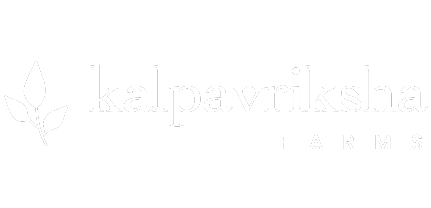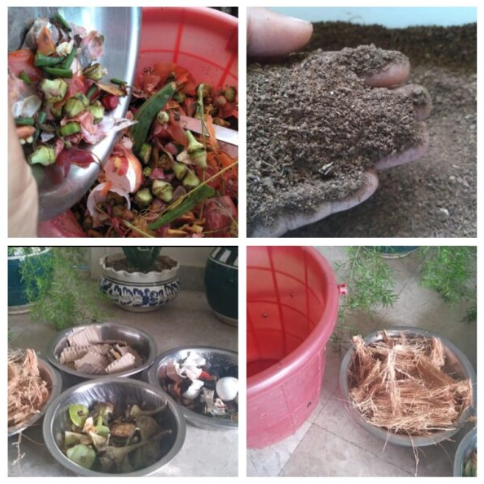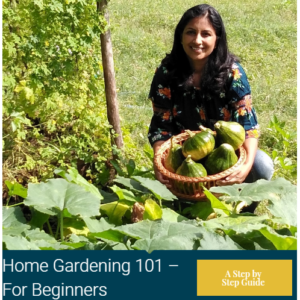Description
Easy Home Composting: How to Make Compost at Home
Composting is one of the simplest and most effective ways to turn your kitchen and garden waste into nutrient-rich soil that benefits your plants and the environment. Whether you have a large garden or a small balcony, home composting is an eco-friendly practice anyone can start with minimal effort and equipment.
If you’re wondering how to make home compost at home or want to understand the composting process at home, our FREE Home Composting 101 guide is the perfect starting point. This easy-to-follow resource breaks down the basics and empowers you to begin composting confidently.
What is Home Composting?
Home composting is the natural process of breaking down organic waste—such as vegetable scraps, fruit peels, coffee grounds, dry leaves, and grass clippings—into a rich, dark, earthy substance known as compost. Compost enriches the soil with nutrients, improves moisture retention, and promotes healthy plant growth.
Through composting, beneficial microorganisms like bacteria, fungi, and earthworms break down organic materials in your compost bin or pile. The result is a natural fertilizer that you can use in your garden or pots.
Why Compost at Home? Benefits Beyond the Garden
Starting composting at home does more than just improve your plants; it offers several important benefits:
1. Environmentally Friendly Waste Management
Organic waste accounts for a large portion of household garbage. When sent to landfills, this waste decomposes anaerobically (without oxygen), releasing methane — a powerful greenhouse gas that contributes to climate change. Composting your organic waste at home reduces landfill waste and lowers your carbon footprint, helping combat global warming.
2. Reduce Household Waste
Composting helps you manage your kitchen and garden waste sustainably. Instead of tossing vegetable peels, fruit scraps, and yard waste into the trash, you recycle these materials into something valuable, reducing the overall amount of waste your household produces.
3. Improve Soil Health Naturally
Chemical fertilizers can harm soil life and pollute waterways. Compost, however, enriches soil naturally, improving its texture, water retention, and fertility. Healthy soil grows stronger plants that are more resistant to pests and diseases.
4. Save Money
Using homemade compost means less need for store-bought fertilizers and soil conditioners. Over time, composting helps you save money on gardening supplies while creating a sustainable cycle of growth.
5. Support a Greener Lifestyle
Composting promotes sustainable living by recycling waste and nurturing the earth. It encourages mindfulness about consumption and waste production, making your household more environmentally responsible.
Who Can Benefit from This Guide?
The Home Composting 101 guide is ideal for anyone wanting to reduce waste and live more sustainably, whether you’re a beginner gardener, an eco-conscious homeowner, or someone looking for simple ways to manage household waste responsibly.
Frequently Asked Questions (FAQs) About Home Composting
1. How long does it take to make compost at home?
Composting generally takes 2 to 6 months, depending on factors like temperature, moisture, materials used, and how often you turn the compost.
2. Can I compost in a small space or indoors?
Yes! Options like worm composting (vermiculture), bokashi bins, and countertop composters make indoor or small-space composting possible.
3. How do I prevent bad odors from my compost?
To avoid odors, don’t add meat or dairy products, maintain a proper balance between green and brown materials, and turn the pile regularly for aeration.
4. What is the difference between green and brown materials in composting?
Green materials are nitrogen-rich items like fresh food scraps and grass clippings. Brown materials are carbon-rich like dried leaves, cardboard, and straw. Both are needed for balanced compost.
5. Can I compost weeds or diseased plants?
It’s best to avoid composting invasive weeds or diseased plants, as they may survive the composting process and spread when you use the compost.
6. How often should I turn my compost?
Turning your compost every 1 to 2 weeks helps aerate the pile and speeds up decomposition.
7. What does finished compost look like?
Finished compost is dark brown or black, crumbly, earthy-smelling, and free of recognizable food scraps.
8. Can I compost meat and dairy?
It’s not recommended to compost meat and dairy at home as they attract pests and cause odors.
9. What if my compost pile is too wet or too dry?
If too wet, add more brown materials like dry leaves or shredded paper. If too dry, add water and green materials to maintain moisture.
10. Can I compost during winter?
Composting slows in cold weather but continues. Indoor or insulated compost bins can help maintain activity during winter.
11. How much space do I need for home composting?
You can compost in small bins or containers suitable for your available space—even a balcony or kitchen countertop can work with the right method.
12. What are common mistakes to avoid when composting at home?
Avoid adding meat, dairy, or oily foods, overwatering the pile, neglecting to turn it regularly, and failing to balance green and brown materials.
13. Can I compost pet waste?
It’s generally not recommended to compost pet waste in home compost bins because it may contain harmful pathogens. Specialized composting methods are needed.
14. How do I know when my compost is ready to use?
Compost is ready when it’s dark, crumbly, smells earthy, and you no longer see recognizable food scraps or materials.
15. Can composting help reduce pests in my garden?
Healthy compost improves soil and plant health, which can make plants more resistant to pests, but compost itself doesn’t directly repel pests.



